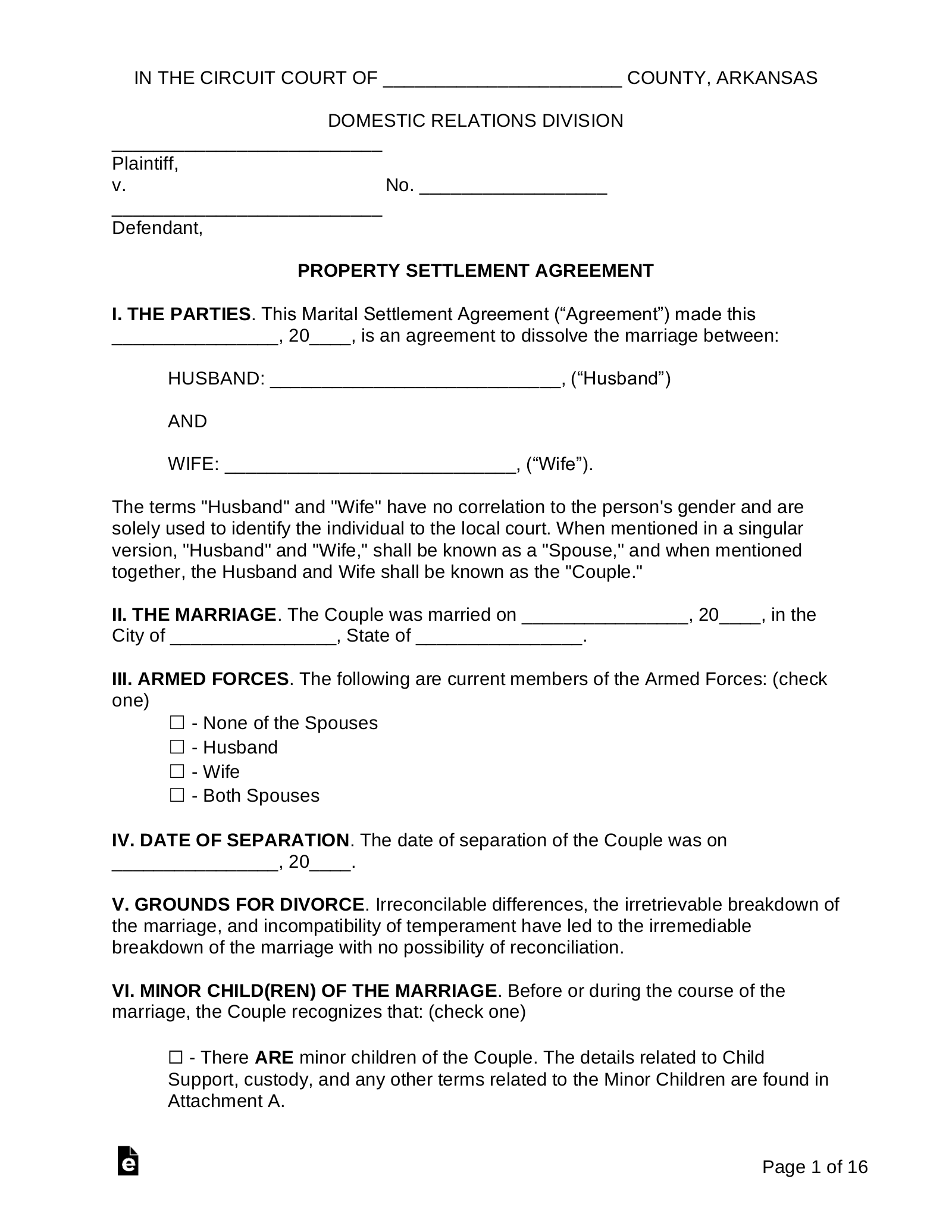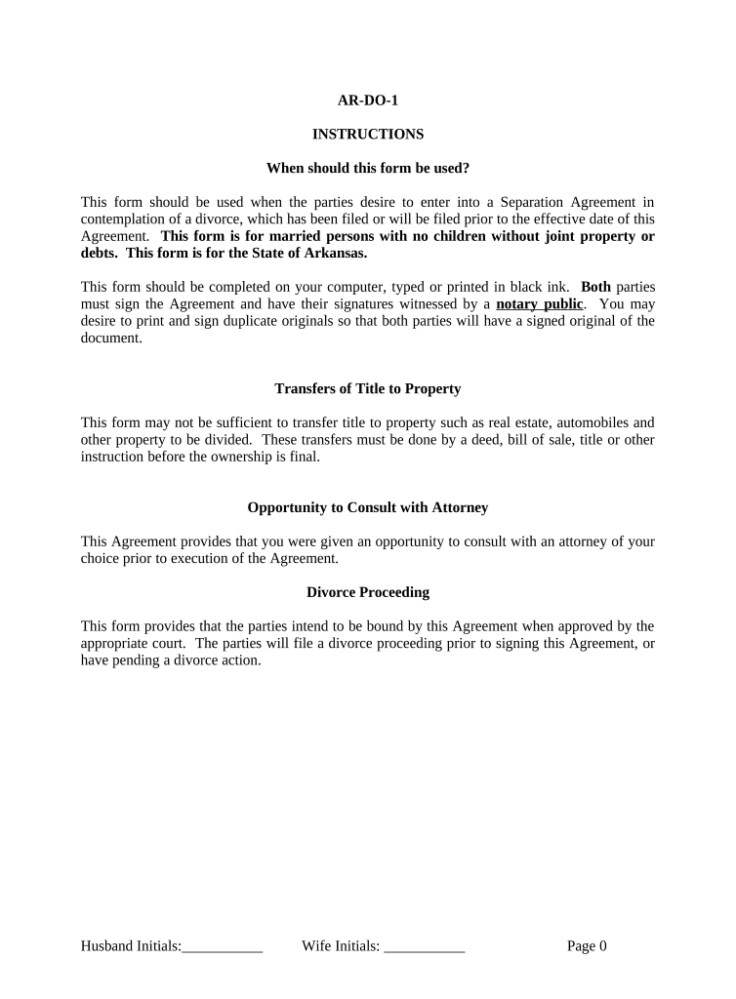Enforcement of Legal Separation Laws in Arkansas
Legal separation is a concept that is often misinterpreted; however, it is an essential alternative for so many couples living in Arkansas. With this legal status, couples are able to continue being married even after moving to different places. Such arrangement provides them with certainty and order that divorce would not. Through legal separation, couples can understand whether they really want to put an end on their union or take some time off before deciding what next to do concerning their relationship status.
Key Differences Between Legal Separation and Divorce

Differentiating between legal separation and divorce is important for anyone thinking in this direction. Below are some differences:
- Marital Status: In legal separation, couples remain married, whereas divorce legally dissolves the marriage.
- Finality: Legal separation can be temporary, allowing for reconciliation, while divorce is permanent.
- Legal Obligations: Both options allow for the division of property and child custody agreements, but divorce generally results in a more definitive settlement.
- Health Benefits: In some cases, separated couples may still maintain health insurance benefits through a spouse’s plan.
- Tax Implications: Legally separated individuals may still file taxes jointly, which can be beneficial in certain situations.
Selecting between a legal separation and divorce requires an assessment of individual situations and some long-term aspirations.
Requirements for Legal Separation in Arkansas

For Arkansas couples seeking to legally separate, certain prerequisites need to be satisfied:
- Residency: At least one spouse must have lived in Arkansas for at least 60 days before filing.
- Grounds for Separation: Couples must cite grounds, such as incompatibility or irreconcilable differences.
- Filing a Petition: A petition for legal separation must be filed in the circuit court of the county where either spouse resides.
The court will set a hearing date to look into the case after the petition has been filed. Financial disclosures that both spouses must submit may include the following:
| Disclosure Type | Details |
|---|---|
| Income | Monthly earnings, bonuses, and additional income sources |
| Assets | Property, savings, investments, and other valuable items |
| Debts | Outstanding loans, credit card debt, and any financial obligations |
To meet these necessities is very important because that way one can stay away from any problems with legal separation process in Arkansas.
Filing for Legal Separation: Step-by-Step Process

We are trained on data until October 2023.
The idea of filing for legal separation in Arkansas may appear complicated but by dividing it into small bits, making the procedure easier to follow. Below is an uncomplicated guide that will lead you through the filing process with much ease.
- Consult with an Attorney: It’s always a good idea to seek legal advice. An attorney can provide valuable insights into your rights and obligations.
- Prepare Your Documents: Gather necessary documents, including financial statements, income records, and details of any assets and debts.
- File the Petition: Complete the Petition for Legal Separation form, which can typically be found on your local court’s website or obtained from the courthouse.
- Serve Your Spouse: Once you file the petition, it must be served to your spouse. This can be done through a process server or sheriff’s office.
- Attend the Hearing: A court hearing will be scheduled. Both parties must attend, where you’ll present your case to the judge.
- Receive the Court’s Decision: After the hearing, the judge will make a decision, and if granted, you’ll receive a legal separation decree.
In this way, both spouses will be able to focus on their future because they will have had the smoothest process possible.
Impact of Legal Separation on Child Custody and Support
Child custody and support arrangements may greatly depend on legal separation. This period has made it necessary for couples to set clear agreements so that the children will be taken care of.
- Custody Arrangements: Parents can work together to create a parenting plan that outlines physical and legal custody responsibilities. This can include where the child will live and how decisions regarding education and health care will be made.
- Child Support: Legal separation often leads to child support obligations. The court may require one parent to pay child support to ensure the child’s needs are met.
- Modifications: If circumstances change, either parent can request modifications to custody or support arrangements, making it essential to keep the court updated.
During this transition it is very important that parents do communicate freely with one another, and take into maybe the most consideration their kids’ welfare.
Property Division During Legal Separation
Through the process of legal separation, married couples can have a better understanding of how they can divide their properties well. Despite being married, courts are empowered to handle property and debt separation.
Arkansas is guided by equity distribution, which indicates that it is fair and not necessarily equal when dividing marital property. These are some of the main things to think about:
- Marital vs. Separate Property: Marital property includes assets acquired during the marriage, while separate property refers to assets owned before the marriage or received as gifts.
- Property Inventory: Both spouses should create a comprehensive inventory of all assets and debts. This includes homes, vehicles, bank accounts, and personal belongings.
- Negotiation: Couples can negotiate the division of property amicably, which can save time and legal costs.
When it comes to situations where both parties are at loggerheads, it is the courts that make decisions in divorce cases. A basic outline of property classifications is presented below:
| Property Type | Example |
|---|---|
| Marital Home | House purchased during marriage |
| Bank Accounts | Joint checking and savings accounts |
| Retirement Accounts | Pensions or 401(k) plans accrued during marriage |
These factors are critical in helping couples sort out their property during dissolution of marriage.
Benefits of Choosing Legal Separation Over Divorce
Choosing between divorce and legal separation is a crucial decision for couples, but it is important that they appreciate the importance of legal separation. Legal separation creates room for reconsideration of the marriage, but still retains some form of protection under the law.
- Time for Reflection: Legal separation allows couples to take a step back from their relationship without the finality of divorce. This time apart can help clarify feelings and decide the best path forward.
- Preservation of Benefits: Couples may retain certain benefits, such as health insurance or tax benefits, which might be lost with divorce.
- Child Custody and Support: Legal separation can provide a structured arrangement for child custody and support without ending the marriage, helping to maintain stability for children.
- Financial Considerations: Couples may choose to separate financially without the complexities of divorce, allowing for a smoother transition in managing joint accounts and assets.
- Opportunity for Reconciliation: Many couples find that legal separation opens the door to possible reconciliation, as it allows them to work on their issues without the pressure of divorce.
Ultimately, for partners who are uncertain about dissolving their marriage, legal separation can offer an equal approach that lets them look into their choices while having some rights and shields under the law.
FAQs About Legal Separation in Arkansas
There are many questions raised by couples that are thinking about legal separation. Here are some FAQs about separation in Arkansas that can help clarify things:
- Is legal separation the same as divorce?
- No, legal separation allows couples to live apart while remaining legally married, whereas divorce legally ends the marriage.
- Can I get legal separation without my spouse’s consent?
- Yes, you can file for legal separation without your spouse’s consent, but they will need to be served with the petition.
- How long does the legal separation process take?
- The timeline varies based on court schedules and complexity of the case, but it generally takes a few months.
- Do I need an attorney for legal separation?
- While it’s not mandatory, having an attorney can help ensure your rights are protected and that the process goes smoothly.
- Can I change my mind after filing for legal separation?
- Yes, you can convert a legal separation into a divorce later if you choose to proceed with ending the marriage.
The legal separation process may appear enigmatic and confusing but these frequently asked questions can provide insights into clarity for individuals who contemplate this choice.
Conclusion on Legal Separation Laws in Arkansas
In Arkansas, legal separation is a flexible alternative to divorce that allows couples to reassess their relationship while maintaining some legal protection. Therefore, it is essential to have a clear understanding of its benefits, requirements, and possible consequences so as to be able to make more informed choices.
Lawsuits may serve as a reasonable choice for a number of reasons, including those of time for self-evaluation, need for monetary stability or the wish to retain domestic advantages. Couples should engage in frank dialogue and get legal guidance in order to go through this difficult moment with more assurance.
To sum up, a legal separation in Arkansas affords individuals the opportunity to grow personally and reflect; in addition, it protects critical rights and obligations, an important consideration for anyone having problems with their marriage.


